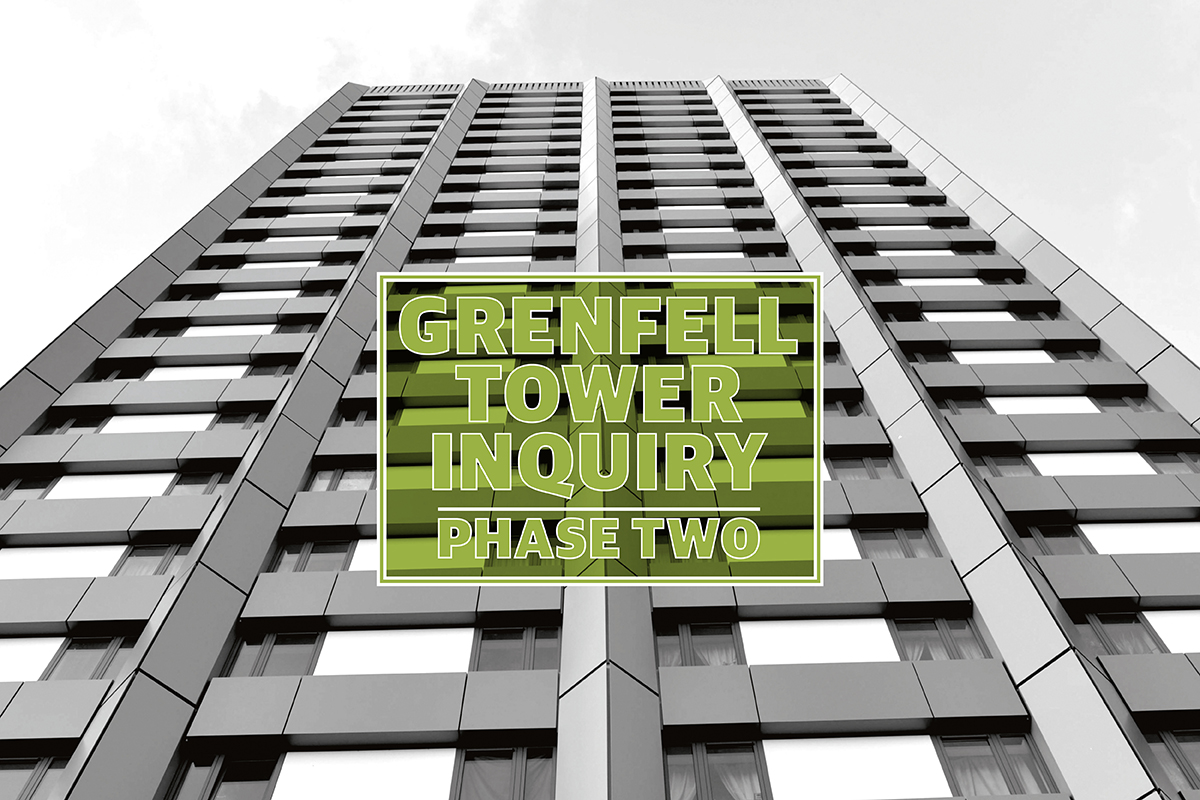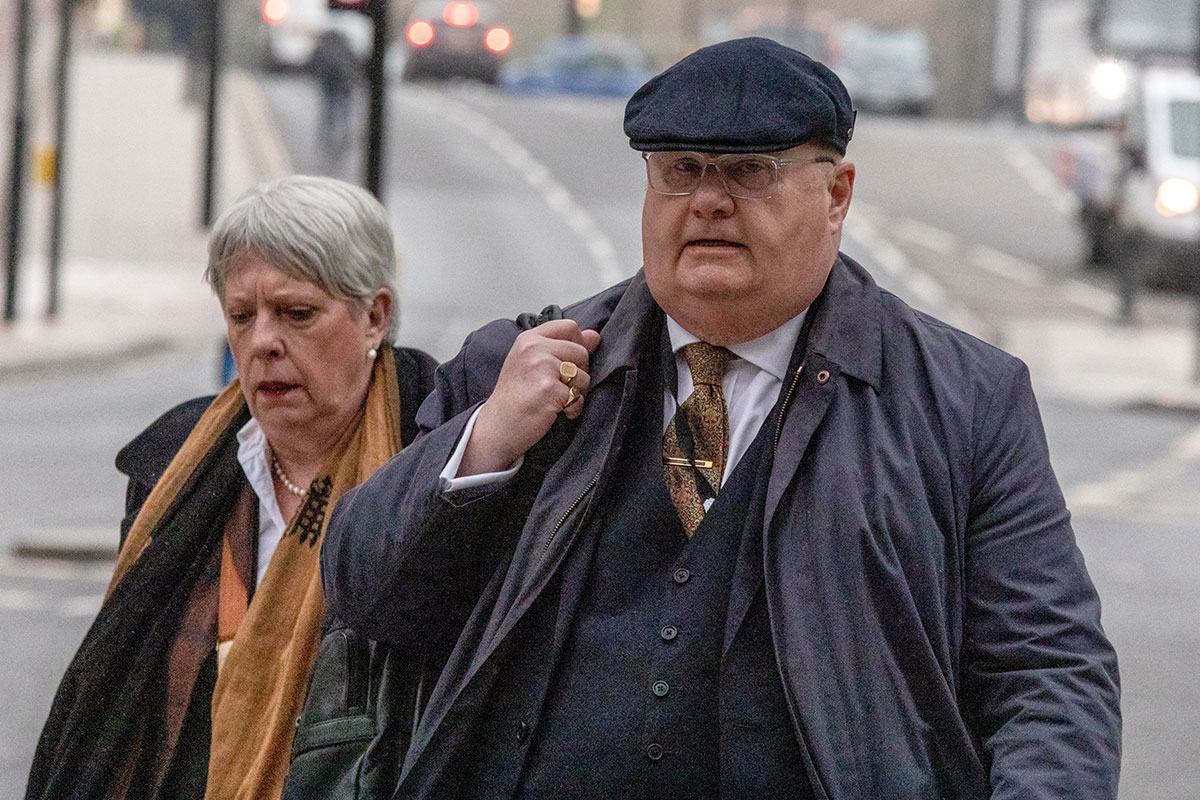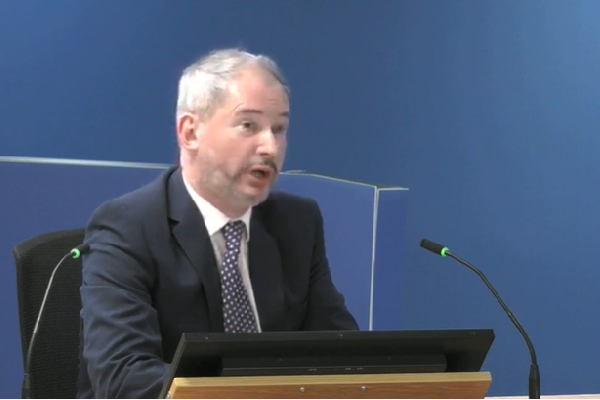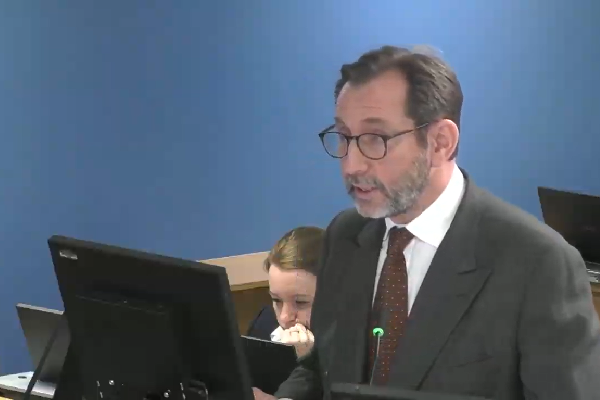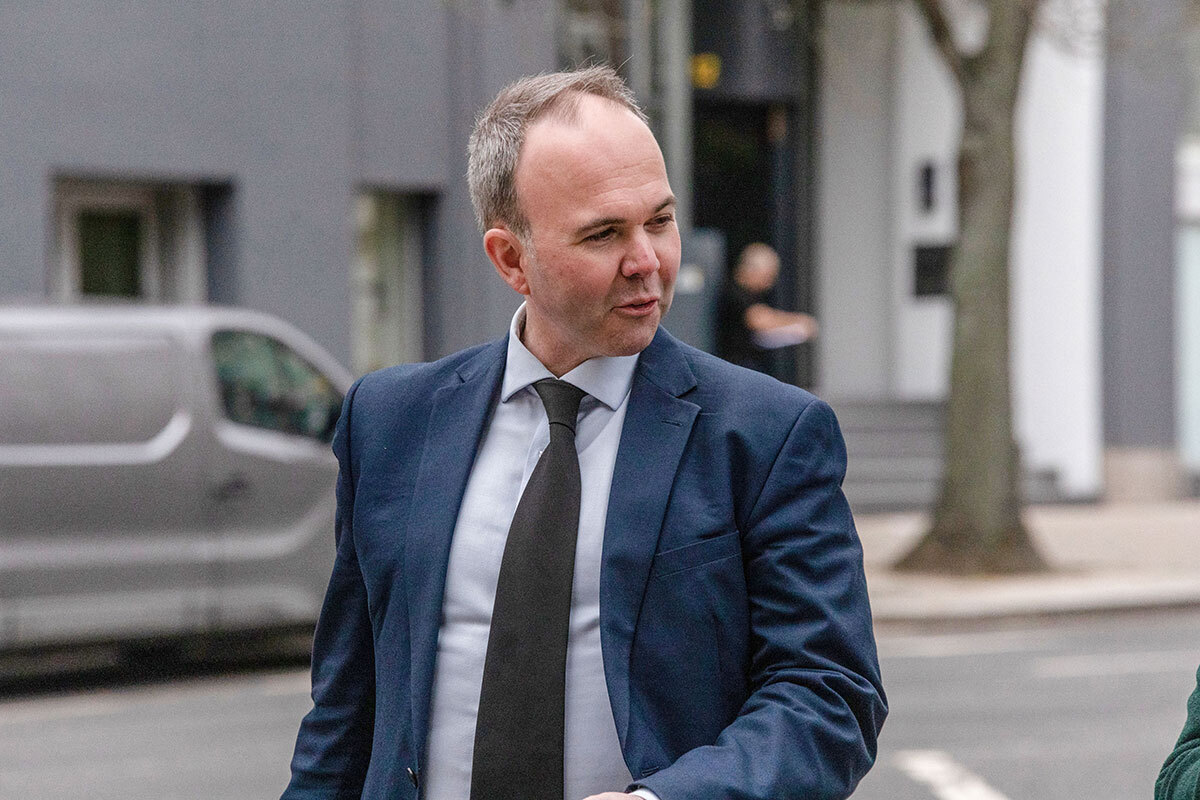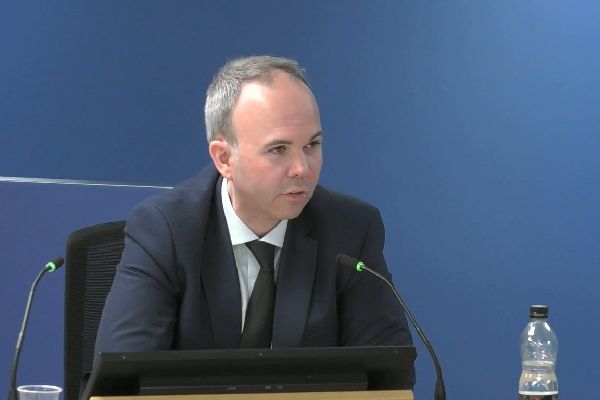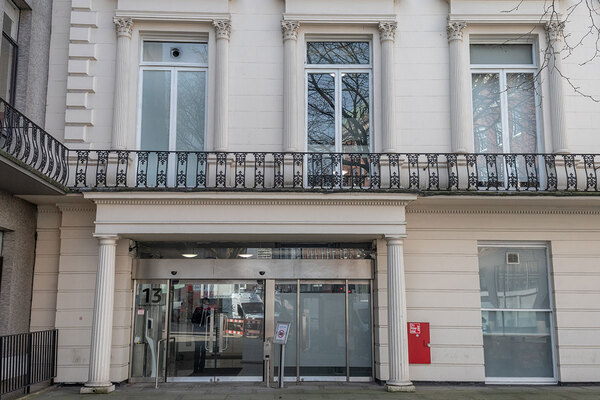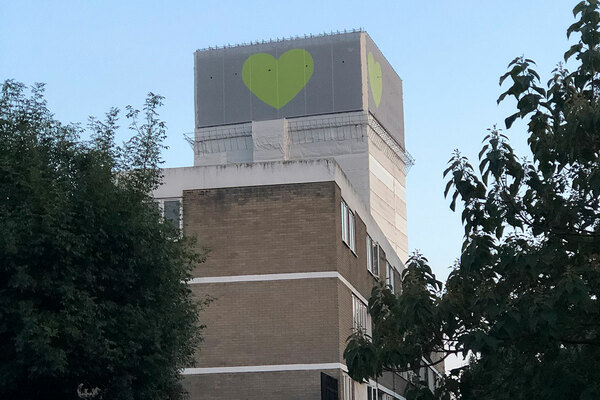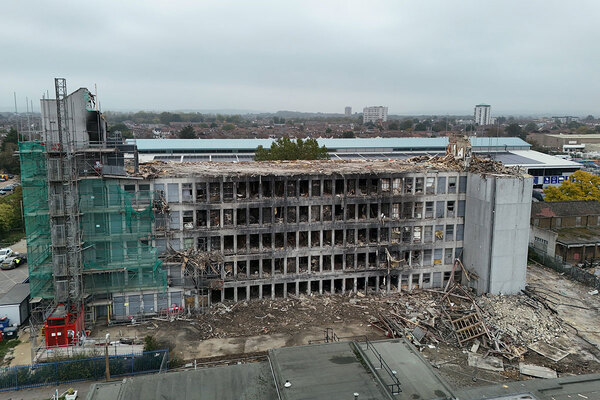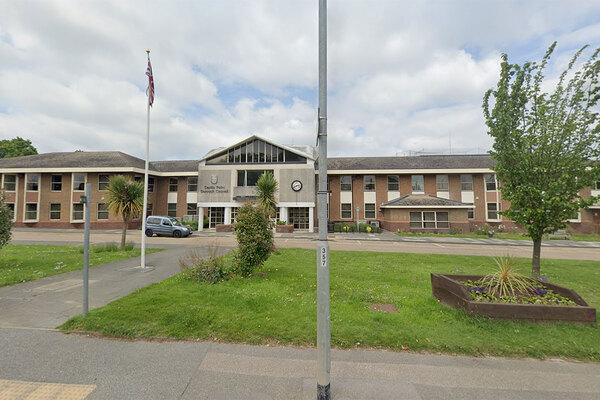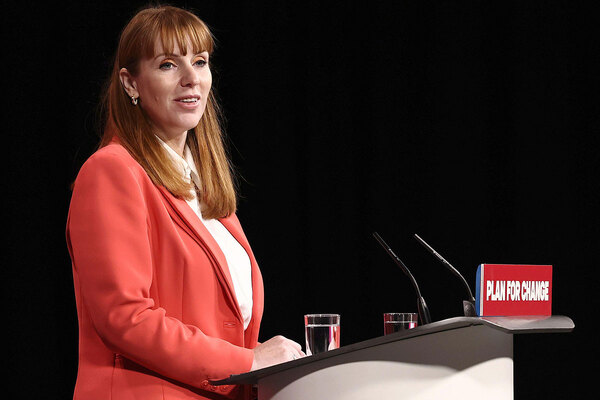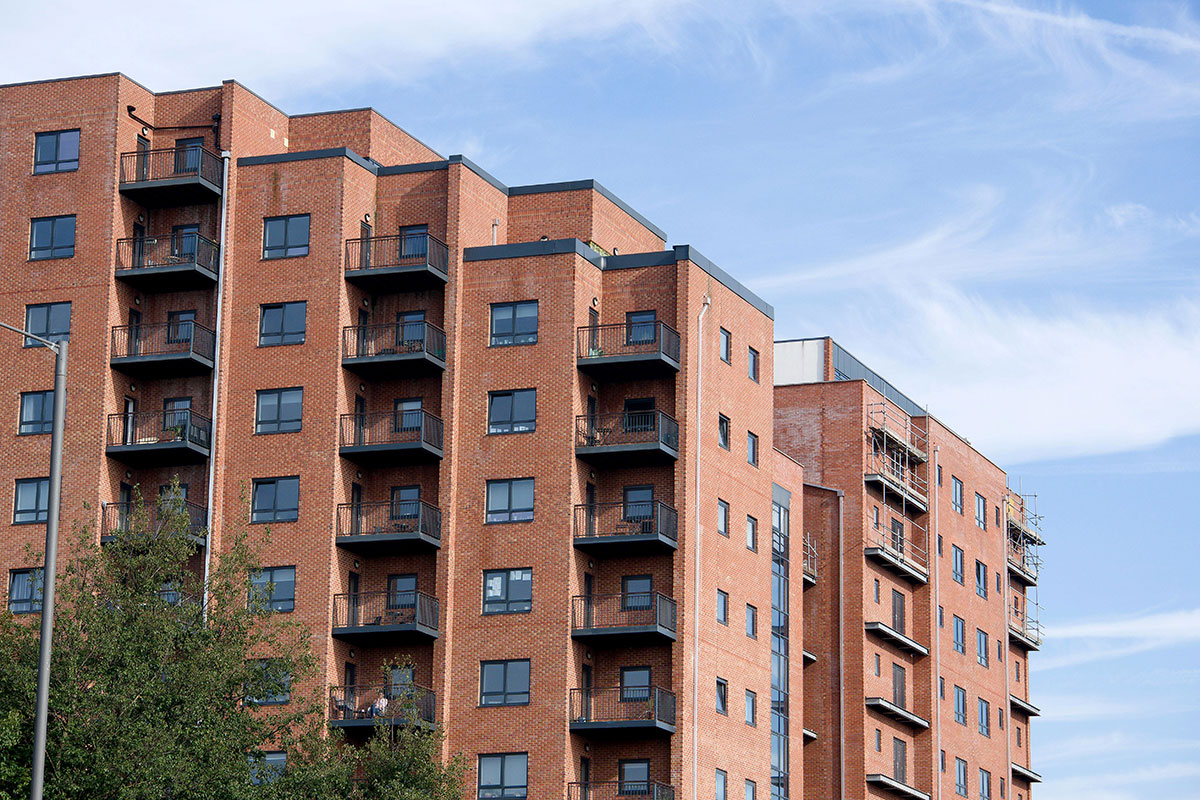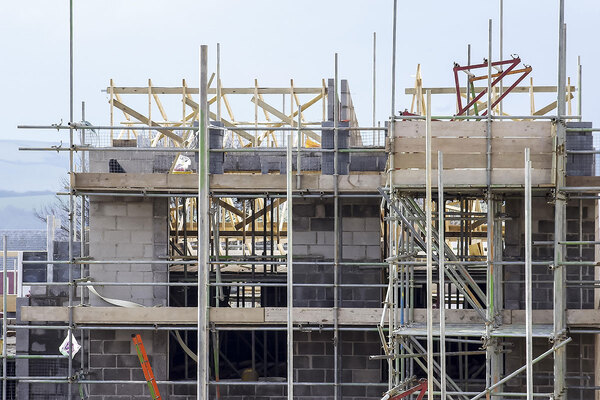Grenfell Tower Inquiry diary week 71: ‘I have changed my schedules to fit this in. I do have an extremely busy day meeting people’
Three politicians who were responsible for building regulations before Grenfell appeared before the inquiry this week, including the former communities secretary Eric Pickles. Peter Apps and Lucie Heath report
It has taken 71 weeks, but the investigation of those responsible for the condition of Grenfell Tower at the time of the fire has finally reached a senior government figure.
Lord Eric Pickles was the star witness this week, with the inquiry investigating his response to the coroner’s recommendations following the inquest into the six deaths at the Lakanal House tower block in south London.
He followed evidence from former junior ministers Stephen Williams and Gavin Barwell.
We begin with Mr Pickles.
‘It certainly affected my judgement in the importance of doing this’
On Wednesday, the inquiry began hearing from Mr Pickles, who was communities secretary from 2010 until 2015.
Mr Pickles’ name has appeared frequently during this module of the inquiry, as he was the minister who received and responded to the coroner’s recommendations following the Lakanal House fire.
These recommendations included a warning about the official government guidance to complying with fire safety regulations – Approved Document B. The coroner called it “a most difficult document to use” and recommended that it be reviewed “with particular regard” to the issue of external fire spread and whether it was appropriate for refurbishments as well as new builds.
But Mr Pickles’ response did not address these substantive concerns. Instead, he merely committed to publishing a new version of the document by 2016-17 – something which appears to have been scheduled anyway.
On Wednesday, we were shown a submission sent to ministers by Brian Martin, the official with responsibility for Approved Document B, regarding the coroner’s recommendations.
The submission said the expert witness appointed to advise the inquest gave “confused and conflicting evidence”, which he blamed on “the process of cross-examination”.
“Given the confusion in court, it is unsurprising that the coroner has criticised the clarity of the guidance,” Mr Martin wrote.
Mr Pickles told the inquiry that this submission “certainly affected my judgement in the importance of doing this”.
When asked whether it meant he took the coroner’s recommendations with a “pinch of salt”, Mr Pickles replied: “No, it would not be fair to say I took it with a pinch of salt… It would explain why I felt that it wasn’t immediately urgent to be addressed and could wait for a comprehensive review.”
Mr Pickles claimed that he had repeatedly queried why a review of Approved Document B could not be completed before 2016-17, but said he was told by the department’s permanent secretary at the time, Bob Kerslake, that the work was “complex”.
The department has accepted in its opening statement that Mr Pickles’ letter to the coroner was “not well structured and is unclear and difficult to follow”.
Asked about this, Mr Pickles said: “I was clear that I’d accepted it [the coroner’s recommendations]. I suppose if I’d continued as secretary of state, everything would have been hunky dory.”
He added that he had phoned the current holder of his role, Michael Gove, after being shown an advance copy of the department’s opening statement and Mr Gove had assured him “I’d appeared throughout quite properly”.
“So let me get this right: you had a telephone conversation with Mr Gove about these submissions?” asked Richard Millett QC, lead counsel to the inquiry.
“It’s not a secret. I was given an advance copy,” Mr Pickles said. “I didn’t walk in and say, you know, ‘Look at this, what the heck are you doing here, why are you saying that?’” he added. “Of course not. I just said I’d noted it.”
‘I have changed my schedules to fit this in. I do have an extremely busy day meeting people’
Mr Pickles (pictured above) went on to make what appeared, on the strength of the evidence so far, to be an extraordinary claim: that the government’s deregulatory agenda in this period – it’s one in, two out policy and red tape challenge – did not apply to the building regulations or Approved Document B.
He based this on a letter sent in November 2011 from an official in his department to the cabinet office.
The letter confirmed that Mr Pickles’ department had requested that “fire safety regulations” be removed from the red tape challenge.
In response, Cabinet Office official Will Cavendish said “fire safety regulations” would be “removed from the Housing, Construction and Planning Administration theme”, but would not be removed “from the Red Tape Challenge process” altogether.
But this appears to have been limited to the Regulatory Reform (Fire Safety Order) 2005, which applies to the management of buildings and is entirely distinct from the building regulations and Approved Document B.
Mr Pickles could not point to any documents which expressly said these parts of the building regulations were exempt.
And Mr Millett presented several documents which suggested the opposite.
One was a draft press release from June 2011 titled “Pickles introduces new red tape test for department”. It said the department was conducting a review of building regulations “to identify any opportunities for deregulation”.
“This, sir, is very thin gruel,” said Mr Pickles, when asked about it. “This is a press officer trying to find stories. This has no status in terms of our policy… But by all means, sir, spend as long time as you want on this document.”
When asked if the various lines in the press release represented the department’s actual policy, Mr Pickles said it was mere “puff”. “I’m not going to answer a question that suggests this document represents government policy or represents anything other than press releases,” he said.
As Mr Millett continued to ask questions about it, Mr Pickles said: “Could I respectfully remind you that you did promise that we would be away this morning, and I have changed my schedules to fit this in. I do have an extremely busy day meeting people, but this is more important than anything. But I would urge you to use your time wisely.”
“Right,” replied Mr Millett. “May I please have an answer to my question?”
“I have answered it. I’ve answered it to the point of exhaustion,” responded Mr Pickles.
He later apologised for being “discourteous” and cancelled his meeting.
Mr Pickles was also shown a letter that he sent to Nick Clegg, George Osborne and Vince Cable in December 2011 that outlined a plan for “regulatory ins and outs” from his department.
In a table, “Part B (Fire safety)” was listed as an “overall regulation out”, with estimated savings of £25.4m per year. Asked why he had written this, Mr Pickles said people are “capable of doing silly things” when they first become secretary of state.
He was also shown a policy impact assessment, signed by his junior minister Don Foster in December 2012, which expressly said Approved Document B was in the scope of the deregulatory ‘one in, one out’ measure.
“If, as I think you would have it, [building regulations on fire safety] were not subject to the one in, one out policy, then why was this impact assessment being prepared and why was it being signed by your minister?” asked Mr Millett.
Mr Pickles branded the document “just part of the normal process”.
Asked who was responsible for passing on that message that fire safety rules were exempt from deregulation, Mr Pickles said: “It’s the civil service, the permanent secretary [then Mr Kerslake] and the director generals of the buildings regulation team.”
He said that the building regulations team had “got themselves into a whirl”, were part of an “isolated bubble” and were “a kind of a parody of what we wanted”.
He said he wished he knew this at the time as he would have responded in a “kind” way.
“There is, Lord Pickles, of course, another explanation,” said Mr Millett. “Which is that, in fact, your department was always subject to the deregulatory agenda, and you’re now seeking to recast that narrative and to underplay what was in truth an enthusiasm by your government for a deregulatory agenda which led to a complete absence of proper checks and balances so far as concerns life safety.”
“I have to say, you know, without getting terribly emotional, I swore on the bloody Bible. I swore on the Bible. I’m a Christian. I wouldn’t come here to make some kind of, you know, to try and just try and remove responsibility,” he replied, banging the table.
Asked at the end of his evidence if he would have done anything differently, Mr Pickles said he had “come to the view” that stronger actions on his part “wouldn’t have made any difference whatsoever”.
He added: “We should never lose sight − this is not about deregulation, one in, one out, number of regulations, fancy letters from the prime minister, this, that and the other… ultimately it comes down to the nameless, I think it was 96 people, who were killed in the Grenfell fire. It’s them we should think about when we’re arguing the toss.”
There were, in fact, 72 victims of the Grenfell Tower fire. For many years, 96 was the death toll of the 1989 Hillsborough Stadium crush – which would appear to be what Mr Pickles was thinking of. All of these people had names.
‘How could you possibly have undertaken that task without reading the coroner’s recommendations?’
On Monday, the inquiry heard from from former minister Stephen Williams (pictured above).
Mr Williams, a Liberal Democrat, took over responsibility for building regulations in October 2013 as part of a broad junior minister portfolio.
Coming five months after the department had responded to the Lakanal House coroner by promising a review of Approved Document B, you might imagine this would have been near the top of the priority list for this area of his work.
It was not. In fact, he never read the coroner’s letter or the department’s response.
“The paper evidence trail shows that it was never shown to me. So if it wasn’t shown to me then, you know, it’s a reasonable assumption that I never read it,” Mr Williams said. “The secretary of state… had responded himself to it, and it was, you know, concluded business to that extent.”
“Given that you were involved in progressing the actions in response to the coroner’s letter, Mr Williams, how could you possibly have undertaken that task without reading the coroner’s recommendations?” asked Mr Millett.
“Well, because officials are there to advise… so I was aware of it in the context, obviously,” Mr Williams replied.
He said that he “was advised that the coroner recommended that something be done about window installers, and that was addressed quickly”.
But this was not, as we have seen, something the coroner actually recommended.
Asked if he knew this, Mr Williams said: “No. So that, what you’ve just said, is quite surprising.”
He added that he would have taken the submission from officials at “face value”.
“Well, you wouldn’t have done, would you, had you read the letter containing her recommendations?” asked Mr Millett.
“That is true. That indeed is a fair point,” replied Mr Williams.
Indeed, the work following Lakanal appears to have been an extremely low priority issue during Mr Williams’ time in office.
“We never had a really detailed conversation about what happened at Lakanal House,” he told the inquiry, adding that “it was something to do with defective windows”.
He said conversations about it were “incredibly brief” and “at most only on two occasions”. Asked about the ‘Class 0’ standard – a critical flaw in the building regulations guidance which has been mentioned thousands of times over the course of this inquiry – Mr Williams said: “That is honestly the first time I’ve ever heard that phrase.”
“What, today?” replied Mr Millett.
“Just now, yeah,” replied Mr Williams
Asked more broadly about the department’s commitment to deregulation, Mr Williams said Mr Pickles was “sceptical about regulation”. “Eric thought most of the officials were Guardian-reading pinkos,” he added.
‘A genuine vision of mass death based on a deep technical knowledge’
What could have prompted Mr Williams to take more active involvement in the required post-Lakanal review was the correspondence from an All-Party Parliamentary Group (APPG) on Fire Safety, which was chaired by the late Sir David Amess MP.
The group first wrote to Mr Pickles in February 2014, but it was Mr Williams who responded, citing the intention to publish a new version of Approved Document B by 2016-17.
But the group persisted, insisting that two issues – the cost effectiveness of sprinklers and the ongoing presence of Class 0 as the standard for external wall panels – were urgent enough to justify a more immediate review.
After a further exchange of letters, Mr Williams again knocked them back. “Perhaps I have not made myself clear,” he wrote. “We expect a revised document to be published around that time [2016-17].”
Mr Williams said this letter was drafted by officials, probably Mr Martin. Asked if the tone disclosed “barely concealed irritation”, he said there “clearly was... but it wasn’t necessarily mine.”
“It’s quite possible it was in a waiting room in Wolverhampton railway station or something, that I was signing lots of letters and quickly handing them back to the official,” he said.
“Well, if it wasn’t yours, why did you put your name to the bottom of it?” asked Mr Millett (pictured above).
“Well, because these aren’t personal letters, Mr Millett,” Mr Williams said.
He described the late Sir David as “an Essex boy, Eurosceptic who opposed same sex marriage and a Thatcherite Tory” with whom he had “nothing in common”. However, Mr Williams said that “personally, we got on”.
Following another letter from Sir David urging him to act, Mr Williams wrote: “I have neither seen nor heard anything that would suggest consideration of these specific potential changes is urgent and I’m not willing to disturb the work of this department to bring them forward.”
Asked about this paraagraph, Mr Williams said: “I do now regret sincerely that this letter left the building. I desperately wish I’d put a line through it and sent it back and said, ‘Try again.’”
“Is it fair to say you were being led uncritically by your officials?” asked Mr Millett.
Mr Williams disagreed with this, insisting he was “intellectually curious and critical” as a minister.
Sir David wrote another letter saying he was “at a loss” as to why the department was not treating the issue as urgent. It added that “should a major fire tragedy with loss of life occur between now and 2017, in for example… a purpose built block of flats”, the group would be “bound to bring this to others’ attention”.
Mr Williams said he was “speculating” but believed the letter was drafted and never sent. There is no record of him replying to it.
Mr Millett put it to him that the group’s warnings “were not exaggerated doomsaying, but a genuine vision of mass death based on a deep technical knowledge and wide professional experience”.
Mr Williams disagreed, insisting the APPG did not have “deep technical knowledge and experience”.
He did eventually meet with the APPG, attending a meeting alongside Mr Martin. The inquiry saw emails between officials which showed Mr Martin’s briefing notes for the meeting described as “Brian batting the APPG away”.
Mr Williams said he was “pretty horrified” by this email.
After he left office, losing his Bristol West seat in the 2015 general election, he was replaced by James Wharton. The APPG wrote to Mr Wharton describing their “continuous frustration over dismissive responses” from Mr Williams.
Asked if he accepted the criticism, Mr Williams said the group should have focused on when the Approved Document B review was happening rather than “slagging off a departed minister”. They did, in fact, raise this issue in the very next paragraph.
Asked at the end of his evidence if he could have done anything differently, Mr Williams said he had “never worked so hard” as he did when a minister and while he “regrets the tone of some of what’s been said”, he believed there was not “anything I could have done to materially make a difference to what happened in July 2017”.
The Grenfell Tower fire occurred in June 2017.
‘Can we agree now that you really ought to have immediately asked to see at least the coroner’s letter?’
In July 2016, following the Brexit referendum and the appointment of Theresa May as prime minister, Croydon MP Gavin Barwell was named housing minister and took over responsibility for a wide portfolio including the building regulations.
However, this was not his primary priority. On 17 July, just a few days after taking office, Ms May phoned Mr Barwell and told him “the key priority was addressing the housing supply crisis”.
He was also given a series of introductory briefings by officials. Building regulations came last, several weeks after he took office.
The slides, shown to the inquiry, made no reference to the Lakanal House fire or the promise that new guidance would be published by 2016-17, despite the deadline rapidly approaching.
“Can we agree now that you should have been given at least some information about the Lakanal fire and the coroner’s recommendations at this introductory briefing?” asked Kate Grange QC, counsel to the inquiry.
“So the straight answer to your question is yes, but I do want to put on record overall I had the highest regard for the officials that I worked with, and I don’t want to come here today and just sort of say, ‘Well, it’s all the officials’ fault that I wasn’t told,’” Mr Barwell replied.
Asked why he did not make fire safety and housing a higher priority, Mr Barwell said things that “could have happened to make me change that judgement” did not happen.
“I never got asked a question in parliament about the building regulations. I did two long interviews with Inside Housing… not a single question about the building regulations or fire safety,” he said. “So clearly… the government had a completely false picture of the level of fire safety, but it wasn’t just the government.”
Mr Barwell was in fact asked a question about the building regulations in parliament in October 2016. It was in preparation for answering this question that he was first told about the promise to review the guidance following Lakanal.
However, he said he was given the impression that it was not “safety critical”. He was also briefed that the commitment was to complete the review “by the end of the parliament”, which was 2020, not the real deadline of March 2017, which was only six months away.
Mr Barwell said this “inaccuracy on the timetable… made a big difference to how I reacted to it”. But he never read the coroner’s letter or Mr Pickles’ response for himself.
“Can we agree now that you really ought to have immediately asked to see at least the coroner’s letter and the letter from the department in response… so that you had a very clear understanding of exactly what the background was to this?” asked Ms Grange.
Mr Barwell said he “accepted the premise” of this question.
After he told parliament that a review was planned, the APPG got in touch with Mr Barwell asking for a meeting. In fact, they had already written to him, but received no response, with the letter apparently going missing.
Mr Barwell declined the meeting, saying that “you had a similar meeting with my predecessor” and it would be better to meet once the review was underway.
He told the inquiry it would have been “useful” to meet the group, but he “accepted the advice of officials” not to.
The APPG then sent several further letters to Mr Barwell spelling out the issues with the approved document. These too appear to have gone missing in the department.
In March, when he finally received a letter from Sir David, which appended the missing correspondence, Mr Barwell agreed to meet and offered the phone number of his private office to arrange the meeting.
But this never happened. A general election was called, parliament was dissolved and Mr Barwell went on to lose his seat. The Grenfell Tower fire occurred days later.
‘The government’s housing supply agenda really dominated your time and overshadowed other core work, some of which was life safety critical’
While all this was going on, work to begin the review of Approved Document B was struggling to get off the ground. One issue was a longstanding delay with the publication of research underpinning the review, which had been delivered to the department in February 2015, but was not cleared for sign-off despite repeated chasing from officials.
The inquiry has previously heard that the reports stuck in Mr Barwell’s (pictured above) private office. They were not published until early 2019.
Mr Barwell called this delay “absurd” and “clearly appalling”. But he insisted the delay cannot have been “solely” down to his private office, and suggested it may in fact have been the department’s special advisors who were causing the slow down – one of whom was Carrie Symonds, the current wife of prime minister Boris Johnson.
A discussion document, required to launch the consultation into the approved document, was also delayed. It was initially supposed to be published in the autumn, but was held back as Mr Barwell worked on a housing white paper.
This process – due to finish in November – ran on until February. Mr Barwell only received the document in March. By the time of the Grenfell Tower fire, it remained unpublished.
The inquiry also saw a letter from the Home Office which urged Mr Barwell to speed up the review of Approved Document B in November 2016.
This was arranged by officials in each department as a ruse to pressure ministers to get on with the review. Mr Barwell said this was a “quite worrying sign of dysfunction” in the process.
He was also sent a strongly worded letter from Dany Cotton, then the London Fire Commissioner, in April 2017 which warned of widespread fire safety issues in blocks of flats, “placing the residents of those properties in significant risk from fire spread within the building”.
This letter was never forwarded to Mr Barwell, who was out campaigning in his marginal constituency at the time. “It’s the only explanation I can offer to you,” he said, adding that he found the letter “distressing”.
“Well, it’s not a satisfactory one, is it?” asked Ms Grange.
“No, it’s not,” replied Mr Barwell.
“Can we agree that the government’s housing supply agenda really dominated your time in the department and overshadowed other core work including to review Approved Document B, some of which was life safety critical?” asked Ms Grange towards the end of his evidence.
Mr Barwell said he “absolutely accepts that”, but added that he was not aware the issue was safety critical, and repeated his earlier point that it was not raised by the media or opposition.
This week concludes the inquiry’s investigation of the government. It resumes next week with an examination of events in the immediate aftermath of the fire.
Grenfell Tower Inquiry week 71: headlines
Pickles insists he ‘could not have made a difference’ to Grenfell as he gets number of victims wrong
Former communities secretary Eric Pickles insisted that a stronger response to coroner’s crucial recommendations in 2013 would not “have made any difference whatsoever”, as he closed his long-awaited evidence to the Grenfell Tower inquiry with a statement that got the number of victims wrong.
Former minister admits ‘scepticism’ over Lakanal recommendations
A former secretary of state agreed he treated the recommendations made to government following the fatal Lakanal House fire “with some scepticism”, after officials told him the inquest into the fire had heard “confused” evidence.
Housing supply ‘overshadowed’ fire safety despite multiple warnings before Grenfell, Barwell accepts
Former housing minister Gavin Barwell accepted that the government’s “housing supply agenda” overshadowed “life critical” fire safety work, despite repeated warnings to his office that rules were in urgent need of review.
Minister responsible for implementing Lakanal fire recommendations never read them
The minister responsible for implementing recommendations after what was then Britain’s worst tower block fire did not even read the coroner’s letter in which they were contained, the Grenfell Tower Inquiry heard.
Sign up for our weekly Grenfell Inquiry newsletter
Each week we send out a newsletter rounding up the key news from the Grenfell Inquiry, along with the headlines from the week
Already have an account? Click here to manage your newsletters
Grenfell Tower Inquiry phase two: weekly diaries
Module one: the refurbishment
Week one: A vivid picture of a broken industry
After a week of damning revelations at the opening of phase two of the Grenfell Tower Inquiry, Peter Apps recaps the key points
Click here to read the full story
Week two: What is the significance of the immunity application?
Sir Martin Moore-Bick has written to the attorney general requesting protection for those set to give evidence at the Grenfell Tower Inquiry. Peter Apps explains what the move means
Click here to read the full story
Week three: Architects of misfortune
This week saw the lead architects for the Grenfell Tower refurbishment give evidence to the inquiry. Peter Apps runs through the key points
Click here to read the full story
Week four: ‘I didn’t have any perception that it was the monster it’s become’
The architects continued to give evidence this week, outlining a lack of understanding of the fire risk posed by the cladding materials and its design. Nathaniel Barker reports
Click here to read the full story
Week five: ‘No adverse effect in relation to external fire spread’
As the Grenfell Tower Inquiry returns from its long absence, Peter Apps recaps the key points from a week of important evidence from the fire consultants to the refurbishment
Click here to read the full story
Week six: ‘I can’t recall any instance where I discussed the materials with building control’
Nathaniel Barker summarises what we learned from fire engineers Exova, architects Studio E and the early evidence from contractor Rydon
Click here to read the full story
Week seven: ‘I do not think I have ever worked with a contractor operating with this level of nonchalance’
Two key witnesses from contractor Rydon gave evidence this week. Peter Apps recaps some of the key points from a revealing week of evidence
Click here to read the full story
Week eight: ‘It haunts me that it wasn't challenged’
Four witnesses from contractor Rydon gave evidence this week. Lucie Heath recaps what we learned on the last week of evidence before the inquiry breaks for five weeks
Click here to read the full story
Week nine: ‘All I can say is you will be taken out for a very nice meal very soon’
This week the inquiry heard evidence from witnesses at Harley Facades, the sub-contractor responsible for Grenfell Tower’s cladding. Peter Apps recaps the key points
Click here to read the full story
Week 10: ‘As we all know, ACM will be gone rather quickly in a fire!’
As the Grenfell Tower Inquiry entered its 10th week, Jack Simpson recaps the key points from a week of important evidence from the refurbishment’s cladding contractor
Click here to read the full story
Week 11: ‘Did you get the impression Grenfell Tower was a guinea pig for this insulation?’
With witnesses from the cladding subcontractor, the firm which cut the deadly panels to shape and the clerk of works which inspected the job giving evidence this was week full of revelations. Peter Apps recaps the key points
Click here to read the full story
Week 12: ‘Would you accept that was a serious failing on your part?’
With the surveyor who inspected Grenfell Tower for compliance giving evidence, this was a crucial week from the inquiry. Dominic Brady and Peter Apps report
Click here to read the full story
Week 13: ‘Value for money is to be regarded as the key driver for this project’
With consultants to Kensington & Chelsea Tenant Management Organisation (KCTMO) giving evidence, attention at the Grenfell Tower Inquiry turned for this first time to the actions of the TMO and the council. Peter Apps reports
Click here to read the full story
Week 14: ‘Did it not occur to you at this point that your budget was simply too low?’
This week, for the first time in phase two, the inquiry heard from Kensington & Chelsea Tenant Management Organisation, the landlord that oversaw the fatal refurbishment of Grenfell Tower. Lucie Heath reports
Click here to read the full story
Week 15: ‘Have you ever informed the police that you destroyed documents relevant to their investigation?’
Witnesses from the Kensington and Chelsea Tenant Management Organisation (KCTMO) gave evidence for a second week, which began with a shocking revelation about withheld and destroyed evidence. Peter Apps recaps
Click here to read the full story
Week 16: ‘I conclude this was very serious evidence of professional negligence’
This week saw members of Kensington & Chelsea Tenant Management Organisation finish giving evidence, before the inquiry’s expert witnesses took the stand to make some highly critical assessments of the work they had seen before and during the refurbishment of Grenfell Tower. Jack Simpson recaps
Click here to read the full story
Grenfell Tower: a timeline of the refurbishment
Following the conclusion of module one of the Grenfell Inquiry’s second phase, Peter Apps presents a timeline of the key moments during the fatal refurbishment of the west London tower block
Click here to read the full story
Module two: the cladding products
Week 17: ‘It’s hard to make a note about this because we are not clean’
The start of the second module of the Grenfell Tower Inquiry phase two came with some huge revelations about the companies that sold the products used in the cladding system. Peter Apps reports
Click here to read the full story
Week 18: ‘It was just reckless optimism wasn't it?’
As the inquiry began cross-examining witnesses for the second module of its phase two work, the picture surrounding just how Grenfell Tower ended up wrapped in such dangerous materials became a little clearer. Nathaniel Barker was keeping an eye on proceedings
Click here to read the full story
Week 19: ‘And that was intentional, deliberate, dishonest?’
The Grenfell Tower Inquiry this week heard the shocking story of how the insulation manufacturer “manipulated” official testing and marketed its product “dishonestly”. Peter Apps tells the story
Click here to read the full story
Week 20: ‘We were outed by a consultant who we then had to fabricate a story to’
This week the inquiry investigated the actions of Kingspan – the manufacturer of one of the insulation products used in the tower’s cladding system. Dominic Brady reports
Click here to read the full story
Week 21: ‘It’s there in black and white isn't it? We see a complete absence of any consideration of life safety’
The story of insulation giant Kingspan’s testing and marketing of its combustible insulation for high rises was unpacked in minute detail this week. Peter Apps reports
Click here to read the full story
Week 22: ‘All we do is lie in here’
In the third week of evidence from insulation giant Kingspan, the inquiry continued to uncover shocking details about the firm’s behaviour both before and after the Grenfell Tower fire. Lucie Heath reports
Click here to read the full story
Week 23: ‘That would have come as an earthquake to you at the time, would it not?’
This week the inquiry took its deepest dive yet into the inner workings of the cladding manufacturer whose product has been blamed for the terrible spread of fire up Grenfell Tower. Nathaniel Barker reports
Click here to read the full story
Week 24: ‘Do you accept that Test 5B was Arconic's deadly secret’
The president of the firm that made and sold the cladding panels installed on Grenfell Tower was asked to account for the apparent concealment of “disastrous” fire tests on the product this week. Peter Apps reports
Click here to read the full story
Week 25: ‘This is quite an incredible list of omissions and missed instances, isn’t it?’
This week the Grenfell Tower Inquiry heard its first witnesses from the Building Research Establishment (BRE) - the testing house which carried out key fire tests on the Kingspan and Celotex insulation products which were later used on Grenfell Tower. Peter Apps reports.
Click here to read the full story
Week 26: 'You were taking an enormous risk, weren't you?'
Week 26 at the Grenfell Tower Inquiry was a key moment in understanding how dangerous products used on the tower came to be accepted by industry professionals. Dominic Brady reports
Click here to read the full story
Week 27: ‘What will happen if one building made out [of] PE core is in fire and will kill 60 to 70 persons?’
The most explosive evidence this week at the Grenfell Tower Inquiry came from those who did not attend, as the evidence which would have been presented to Arconic witnesses was displayed in their absence. Peter Apps reports
Click here to read the full story
Week 28: ‘This is a serious safety matter’
This week the Grenfell Tower Inquiry zeroed in on the British Board of Agrément, the body that produced “misleading” certificates which inspired trust in both the cladding and insulation used on the tower. Lucie Heath reports
Click here to read the full story
Week 29: ‘Is it true that Kingspan’s position… was to do its best to ensure that science was secretly perverted for financial gain?’
The final week in this section of the Grenfell Tower Inquiry primarily examined the attempts by insulation manufacturer Kingspan to lobby government after the fire. Peter Apps reports
Click here to read the full story
How the products used in Grenfell Tower's cladding system were tested and sold
As the section of the Grenfell Tower Inquiry examining how the products used in the cladding system were tested, marketed and sold comes to a close, Peter Apps summarises what we have learned about each of the products included in the system
Click here to read the full story
Module Three: the management of the tower
Week 30: ‘There is certainly a high probability that in the event of a fire the whole building can become an inferno’
The focus of the inquiry shifted this week to the actions of the social housing providers responsible for maintaining Grenfell Tower. Pete Apps recaps what we learned
Click here to read the full story
Week 31: ‘If we cannot get out people will die’
This week saw the former residents of Grenfell Tower enter the witness box to tell of their experiences attempting to raise complaints with the council and its managing agent. Pete Apps reports
Click here to read the full story
Week 32: ‘Let's hope our luck holds and there isn't a fire’
This week saw the return of the landlord of Grenfell Tower, Kensington and Chelsea Tenant Management Organisation (KCTMO), as senior staff members attempted to explain how vital fire safety protections at the block were allowed to fall into disrepair. Lucie Heath reports
Click here to read the full story
Week 33: ‘Isn't that a serious gap in the scope of a policy meant to safeguard vulnerable people?’
A slightly disjointed week at the Grenfell Tower inquiry saw further evidence from staff at building manager Kensington and Chelsea Tenant Management Organisation (KCTMO) interspersed with the views of a cladding expert. Peter Apps reports
Click here to read the full story
Week 34: ‘Some members of the community are doing their best to spread false information’
Jack Simpson covers all the major revelations from the past week of evidence at the Grenfell Inquiry, including evidence from Laura Johnson, director of housing at the Royal Borough of Kensington and Chelsea.
Click here to read the full story
Week 35: ‘I really didn’t like the champagne’
This week the Grenfell Tower Inquiry saw council witnesses, including former deputy leader Rock Feilding-Mellen and leader Nicholas Paget-Brown, questioned about their role in the story for the first time. Peter Apps reports
Click here to read the full story
Week 36: ‘Is that not a very incurious approach for a fire risk assessor?’
This week the Grenfell Tower Inquiry scrutinised the work of Carl Stokes, the man hired to carry out fire risk assessments for the block. Nathaniel Barker reports
Click here to read the full story
Week 37: ‘In giving that advice, weren’t you acting beyond your knowledge and expertise?’
A curtailed week at the Grenfell Tower Inquiry saw fire risk assessor Carl Stokes grilled over advice he gave regarding the tower’s cladding. Peter Apps reports
Click here to read the full story
Week 38: ‘Well it’s a bit more than that, isn’t it. He’s suggesting that you tell the LFB a lie’
The inquiry heard the mammoth cross-examination of KCTMO’s health and safety manager Janice Wray this week. Peter Apps reports
Click here to read the full story
Week 39: ‘What you said there was a grotesque understatement’
This week the inquiry continued to hear from former employees of Kensington and Chelsea Tenant Management Organisation, as well as two employees from the London Fire Brigade. Lucie Heath reports
Click here to read the full story
Week 40: ‘An exercise in concealment and half-truth’
Former KCTMO chief executive Robert Black gave his evidence to the inquiry this week and was asked to account for the various failures described over the previous six weeks. Peter Apps and Nathaniel Barker report.
Click here to read the full story
Week 41: ‘We should do nothing. This is not the sort of website we should be responding to’
This week saw the return of Robert Black, chief executive of Kensington and Chelsea Tenant Management Organisation (KCTMO), before the inquiry turned its attention to the defective smoke control system in the tower. Dominic Brady reports
Click here to read the full story
Week 42:‘They would leak as much as they leaked. They were what they were’
The Grenfell Tower Inquiry continued its in-depth investigation of the tower’s non-compliant smoke control system this week, with evidence from the various contractors involved in delivering it. Pete Apps reports
Click here to read the full story
Week 43:‘Contractors at the time were not generally aware of the importance of leaving holes unsealed’
This week the inquiry focused on two of the more overlooked areas of the Grenfell Tower fire, with evidence focusing on the gas pipelines and lifts within the west London block. It was a packed week, with five witnesses giving evidence. Jack Simpson reports
Click here to read the full story
Week 44:‘I've never seen a fully compliant firefighting lift in any local authority building, to this day actually’
This week the inquiry turn the focus onto the building’s defective lifts, with evidence from an expert, contractors who worked on them and a former engineer at KCTMO. Pete Apps reports.
Click here to read the full story
Week 45: ‘Don’t you find all this rather a surprising debate, given that the Equality Act was passed in 2010?’
The inquiry heard from expert witness Colin Todd this week, who gave his views about the work of risk assessor Carl Stokes as well as answered questions about his own guidance. Peter Apps and Nathaniel Barker report
Click here to read the full story
Week 46: ‘I think I've been very, very clear that is completely wrong’
This week the inquiry heard further expert evidence about fire risk assessor Carl Stokes’ actions, as the section of its work covering the management and maintenance of the tower concluded. Peter Apps reports
Click here to read the full story
Six key failures in the way Grenfell Tower was managed before the fire
Peter Apps recaps some of what we have learned about the actions of the Royal Borough of Kensington and Chelsea (RBKC) and Kensington and Chelsea Tenant Management Organisation (KCTMO) in the years before the fire.
Module one and two closing statements
Week 47: ‘An unedifying spectacle’
After a week of closing statements from the core participants involved in modules one and two, Lucie Heath recaps the key arguments of each group
Click here to read the full story
Module five: the fire brigade
Week 48: ‘They knew, and lives could and should have been saved’
The phase of the Grenfell Tower Inquiry examining the actions of the London Fire Brigade in the years before the fire kicked off this week with some major revelations. Peter Apps reports
Click here to read the full story
Week 49: ‘I'm not sure we've always taken every opportunity to learn as an organisation’
How the London Fire Brigade acted upon lessons from incidents in the years before the Grenfell Tower disaster came under the microscope this week at the public inquiry. Nathaniel Barker reports
Click here to read the full story
Week 50: ‘There is a culture in LFB that is very conservative. I think there is great comfort in what is familiar’
This week the inquiry heard how the London Fire Brigade (LFB) elected not to issue warnings about dangerous cladding before Grenfell and a detailed examination of its policy for checking high risk buildings. Pete Apps reports.
Click here to read the full story
Week 51:‘We teach firefighters to expect building failure’
An unusually brief week of evidence at the Grenfell Tower Inquiry explored how a fire service neighbouring London was taking a different approach to tackling blazes in high rises. Nathaniel Barker reports
Click here to read the full story
Week 52: ‘I actually think that there is a measure of incompetence at all levels’
Expert evidence concluded the current section of the inquiry with some stinging criticism of the London Fire Brigade (LFB). Pete Apps and Grainne Cuffe report.
Click here to read the full story
Module six: fire services
Week 53: ‘They make for chilling reading and harrowing listening’
The inquiry’s investigation into central government began this week with lawyers setting out their view on how and why firefighting policies failed. Peter Apps and Lucie Heath report
Click here to read the full story
Week 54: ‘Our consideration of evacuation at this time was something of a blind spot’
The development of policy on ‘stay put’, both nationally and for London, occupied the attention of the inquiry this week. Peter Apps reports
Click here to read the full story
Week 55: ‘My review is pretty scathing!’
In a week that included the 200th day of evidence in phase two of the inquiry, attention turned to the London Fire Brigade’s control room. Lucie Heath reports
Click here to read the full story
Week 56: ‘Why didn't we thump the table harder’
This week, the control room at the London Fire Brigade was examined further – both before and after the fire. Pete Apps and Lucie Heath report
Click here to read the full story
Week 57: ‘It was worse than slow, it was sluggish’
Former London Fire Brigade (LFB) commissioner Dany Cotton was the star witness this week, as the inquiry continued to delve into the brigade’s knowledge and training before the Grenfell Tower fire. Jack Simpson, Grainne Cuffe and Pete Apps report
Click here to read the full story
Week 58: ‘I don't think we deserve to ask for trust until we demonstrate different outcomes’
A current and former commissioner of the London Fire Brigade (LFB) wrapped up the inquiry’s investigation into the actions of the brigade before the fire. Grainne Cuffe and Peter Apps report.
Module six: testing and government
One of the major scandals of our time: key revelations as the Grenfell Tower Inquiry turns to government
The government was accused of “covering up” the risks of dangerous cladding as its “unbridled passion for deregulation” left it a “junior party” to the construction industry as the latest phase of the public inquiry opened today. Peter Apps summarises some of the main points
Click here to read the full story
Week 59: ‘Recent tests have apparently shown it continued to burn for 20 minutes after the flame was taken away’
After shocking opening statements, the Grenfell Tower Inquiry turned its attention to the work of Local Authority Building Control. Pete Apps reports
Click here to read the full story
Week 60: ‘You could have an exact repeat of the Dubai fire in any number of buildings in London’
The Grenfell Tower Inquiry turned its attention to the work of the National House Building Council this week, with shocking revelations about the extent of the warnings issued to central government before the fire. Peter Apps reports
Click here to read the full story
Week 61: ‘Mistakes are meant for learning, not repeating’
In the first hearings of the new year, the Grenfell Tower Inquiry heard closing statements from the firefighting section of phase two. Lucie Heath reports
Click here to read the full story
Week 62: Did it ever occur to you that this act of collaboration was, in one sense, corrupting?
The Grenfell Tower Inquiry returned to the work of the National House Building Council (NHBC) this week, with a new shocking revelation about the government’s actions in the immediate aftermath of the fire. Peter Apps reports
Click here to read the full story
Week 63: ‘It came after the general move to deregulation. So more regulation was not welcome’
The government’s focus on deregulation before the Grenfell Tower fire was placed in the spotlight this week with a series of shocking revelations about its failure to amend fire safety guidance. Pete Apps and Grainne Cuffe report
Click here to read the full story
Week 64: ‘I didn’t think ACM would be suitable for use in any high-rise buildings. I don’t think anyone did’
This week, the Building Research Establishment’s Dr Sarah Colwell gave more than three days of evidence, with some huge revelations about what was known about the dangers of aluminium composite material years before the fire and the mass confusion over the government’s building regulations. Peter Apps and Jack Simpson report
Click here to read the full story
Week 65: ‘Unless the government does something now about ACM panels, people will die’
Further evidence from the Building Research Establishment and the first government witnesses added new depth to our understanding of how warnings were missed before the Grenfell Tower fire. Peter Apps reports
Click here to read the full story
Week 66: ‘Was there a cover-up?’
The latest evidence from the Grenfell Tower Inquiry tracked the government’s failure to act on fire safety warnings right up until the months before the fire. Peter Apps and Grainne Cuffe report
Click here to read the full story
Week 67: ‘When exposed to a fire, the aluminium melts away and exposes the polyethylene. Whoosh!’
This week the inquiry heard disturbing new evidence about the failure of senior government officials to act on warnings about dangerous cladding in the years before the Grenfell Tower fire. Peter Apps reports
Click here to read the full story
Week 68: ‘Can we agree that was a pretty dangerous thing to have, all this falling on one man’s shoulders?’
Three senior civil servants gave evidence this week, including the official who had responsibility for building regulations guidance on fire safety in the years before Grenfell. Peter Apps, Lucie Heath, Stephen Delahunty and Grainne Cuffe report
Click here to read the full story
Week 69: ‘It was just unthinkable. You had the makings here of a crisis you could not comprehend’
This week, civil servant Brian Martin gave his long-awaited evidence to the Grenfell Tower Inquiry. Peter Apps reports
Click here to read the full story
Week 70: ‘Show me the bodies’
An important week at the Grenfell Tower Inquiry saw a dramatic conclusion to the mammoth cross-examination of civil servant Brian Martin, as well as the first politicians. Peter Apps and Lucie Heath report
Click here to read the full story
Week 71: ‘I have changed my schedule to fit this in. I do have an extremely busy day meeting people’
Three politicians who were responsible for building regulations before Grenfell appeared before the inquiry this week, including the former communities secretary Eric Pickles, who responded to the coroner’s letter following the Lakanal House fire. Peter Apps and Lucie Heath report
Click here to read the full story
Module Four: aftermath
Week 72: 'The system isn't broken. It was built this way'
This week the inquiry turned to the shocking story of the lack of support for bereaved and survivors in the immediate aftermath of the Grenfell Tower fire. Peter Apps, Lucie Heath, Grainne Cuffe and Jack Simpson report
Click here to read the full story
Week 73: ‘Most people would regard that as hopeless’
This week, the Grenfell Tower Inquiry heard about the Royal Borough of Kensington and Chelsea’s chaotic response in the immediate aftermath of the blaze, from the staff responsible for it. Pete Apps, Stephen Delahunty and Grainne Cuffe report
Click here to read the full story
Week 74: ‘Do you agree that RBKC was ill-prepared and incapable to meet its duties’
This week, Nicholas Holgate, former chief executive of the Royal Borough of Kensington and Chelsea, was grilled on his failure to hand over control of the aftermath of the fire, despite the borough’s lack of capacity. Peter Apps reports
Click here to read the full story
Week 75: ‘It still shocks me to the core that that’s how we treat our citizens in this country’
This week the inquiry heard witnesses from the housing management body discuss their role in the aftermath of the Grenfell Tower fire, followed by a range of witnesses from other organisations which supported the response. Peter Apps and Grainne Cuffe report
Click here to read the full story
Week 76: ‘I fear this will become our New Orleans’
This week the inquiry heard from central government figures and members of the London-wide emergency response arrangements. Peter Apps and Grainne Cuffe report
Click here to read the full story
Week 77: ‘The planning wasn’t done and there was nothing for us to be drawing on’
The Grenfell Tower Inquiry’s examination of the aftermath of the fire concluded with witnesses from central government. Peter Apps reports
Click here to read the full story
Module seven: expert evidence and closing statements
Week 78: ‘The abandonment of the ‘stay put’ strategy for high-rise residential buildings is essential’
This week the Grenfell Tower Inquiry heard a range of expert witnesses discuss their reports. Peter Apps and Grainne Cuffe report
Click here to read the full story
Week 79: ‘You could argue the system was created to enable people to circumvent the rules’
The Grenfell Tower Inquiry continued to hear expert evidence this week, with two senior figures in the world of fire safety academia criticising the government’s approach before and after the blaze. Peter Apps and Grainne Cuffe report
Click here to read the full story
Week 80: ‘The evidence points to wilful blindness and complacency towards safety’
As the inquiry moves into its final stages, lawyers for the key players gave statements about the evidence surrounding central government. Peter Apps reports
Click here to read the full story
Week 81: ‘This is Islamophobia. It’s racism. It is the elephant staring back at us in the room’
This week, closing statements covering the aftermath of the fire delivered a shocking new revelation and an expert toxicologist gave his views on the causes of the deaths. Peter Apps reports
Click here to read the full story
Module eight: further evidence relating to the deceased
Week 82: ‘Their chance to hear about the circumstances in which their loved ones died is the culmination of five years of waiting’
The Grenfell Tower Inquiry moved into its final module this week, with evidence relating to the circumstances in which the victims died. Peter Apps reports
Click here to read the full story
Week 83: ‘They died together as they lived: caring for one another’
A second week of evidence relating to the circumstances in which the victims of the fire died delivered more heartbreaking stories about their final moments. Peter Apps recaps
Click here to read the full story
Week 84: ‘Every decision affects someone who is an adored child, a beloved sister, a respected uncle, a needed mother’
The final week of oral evidence for the Grenfell Tower Inquiry’s second phase contained more heartbreaking evidence about the deaths in the tower. Peter Apps reports
Click here to read the full story
Closing statements
Week 85: ‘The merry-go-round turns still, the notes of its melody clearly audible in the last few days’
The Grenfell Tower Inquiry returned this week for closing statements from lawyers representing the bereaved and survivors and the various parties under scrutiny for the fire. Pete Apps reports.
